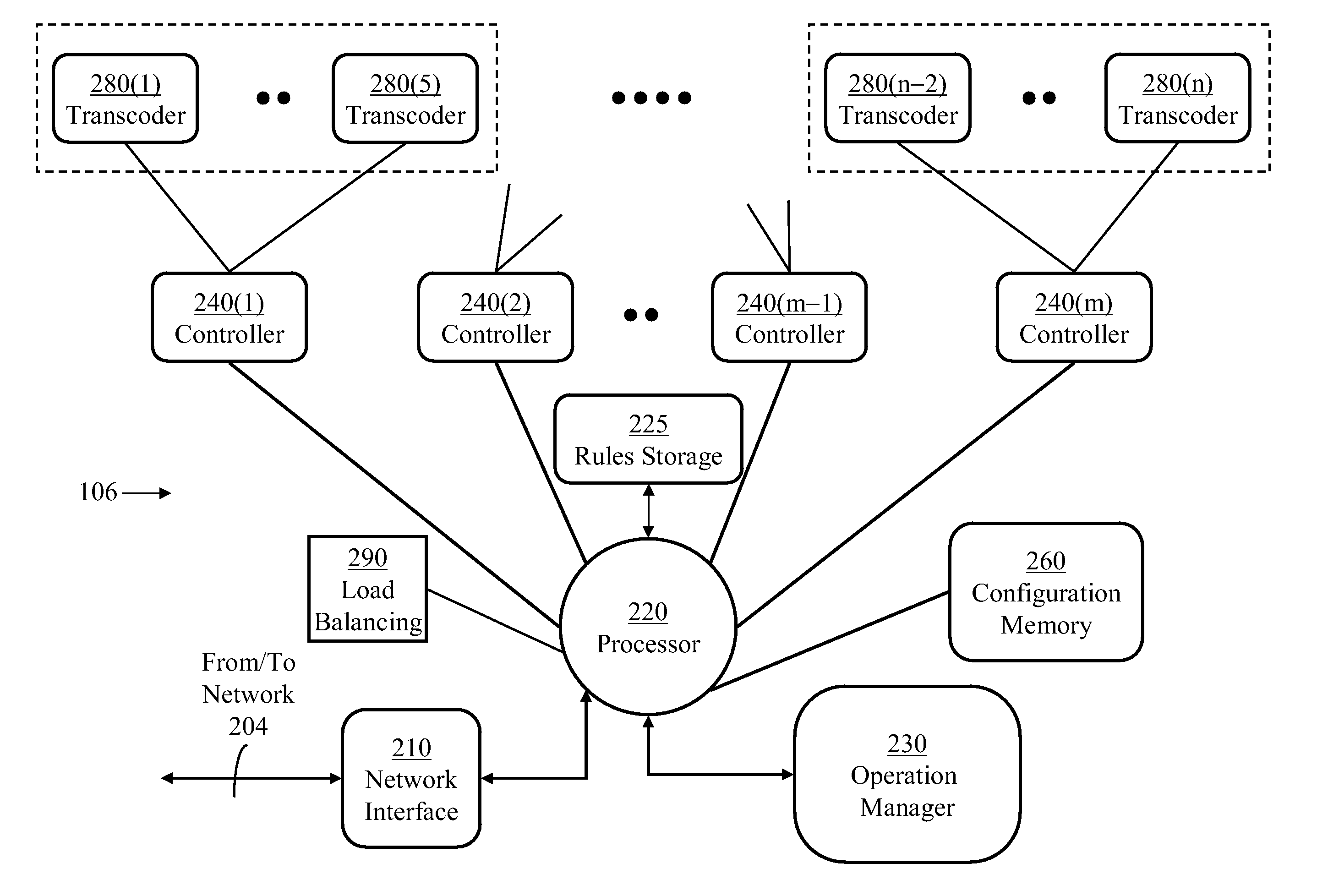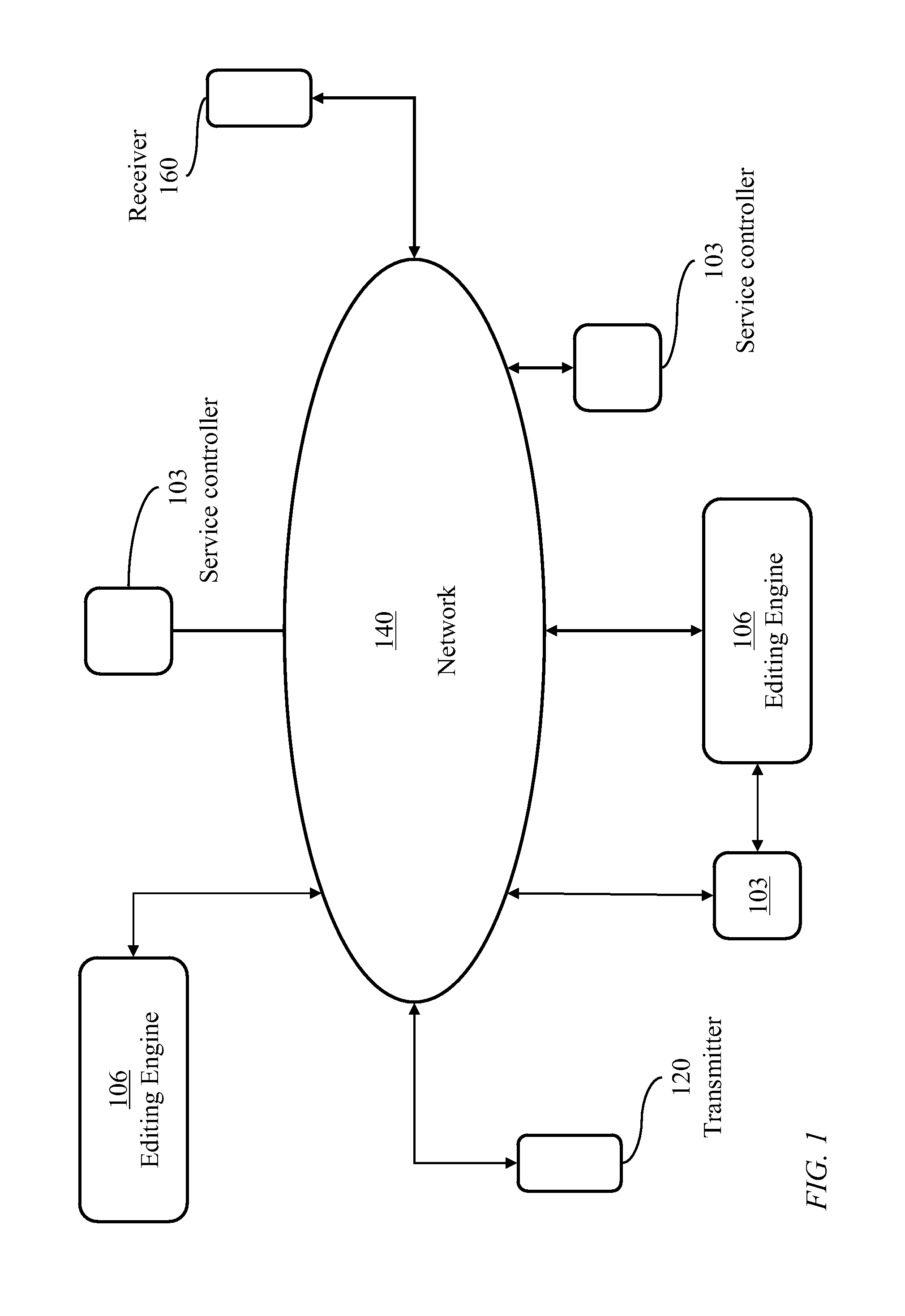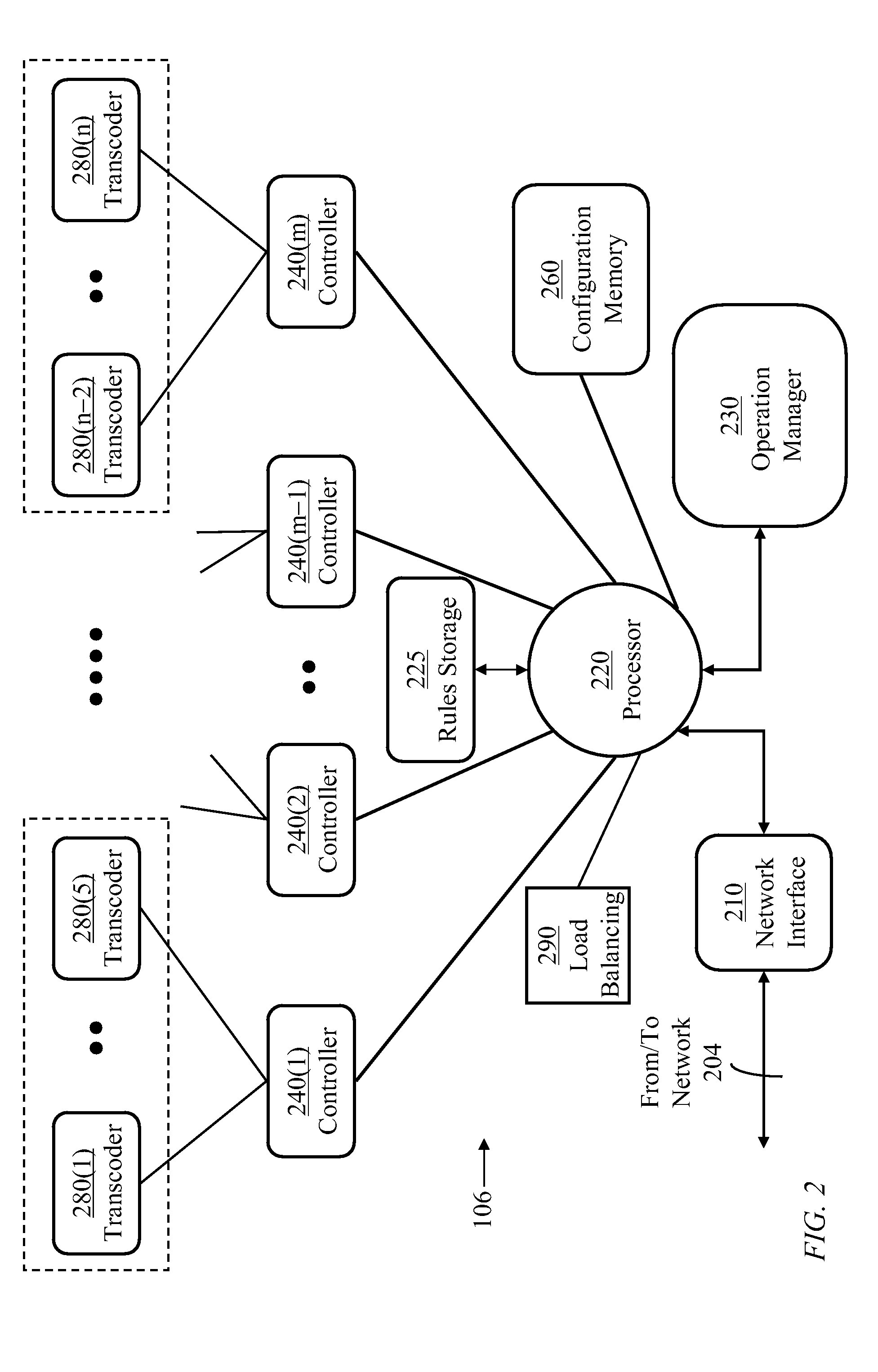Method and system for rule-based content filtering
a content filtering and rule-based technology, applied in the field of multimedia messaging services, can solve the problems of increasing the exposure to malicious insertions, incompatibility issues, etc., and achieve the effect of a comprehensive, efficient and economical system
- Summary
- Abstract
- Description
- Claims
- Application Information
AI Technical Summary
Benefits of technology
Problems solved by technology
Method used
Image
Examples
Embodiment Construction
Terminology
[0118]Multi-Media Service (MMS): The term is used colloquially to refer to multi-content communication services where information contents of different forms such as text, audio signals, video signals, images, presentations, etc., are exchanged among terminals through a network. Encoded information transferred from one terminal to another is typically arranged in a single data stream with time-interleaved segments corresponding to the different information contents.
Container: A container is a computer file stored on a computer readable medium and transmitted over a computer network. The container is structured to contain various types of data. The container may support multiple text, audio, and video streams with synchronization information to enable coordinated play back of various streams.
Container component: A container includes sections, each comprising data encoded in a specific form, such as a text, audio data, image data, or video data. The term container component...
PUM
 Login to View More
Login to View More Abstract
Description
Claims
Application Information
 Login to View More
Login to View More - R&D
- Intellectual Property
- Life Sciences
- Materials
- Tech Scout
- Unparalleled Data Quality
- Higher Quality Content
- 60% Fewer Hallucinations
Browse by: Latest US Patents, China's latest patents, Technical Efficacy Thesaurus, Application Domain, Technology Topic, Popular Technical Reports.
© 2025 PatSnap. All rights reserved.Legal|Privacy policy|Modern Slavery Act Transparency Statement|Sitemap|About US| Contact US: help@patsnap.com



